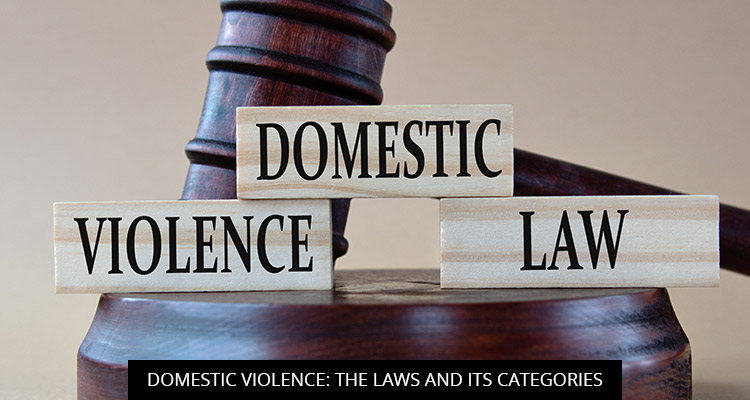
The laws on domestic violence in Canada vary across provinces and as of now there is no particular legislation on domestic violence. However, this does not imply that the offence of domestic violence has no legal consequences.
What Is Domestic Violence?
Domestic violence means when you are being abused physically, emotionally, mentally, sexually, or economically at the hands of your intimate partner. It is pertinent to mention that domestic violence is not only limited to intimate relationships but children can also be victims of domestic abuse at the hands of another family member. Also, it can be said that domestic violence is an act of exercising control or force over another person.
It goes without saying that most domestic abuse also known as Intimate Partner Violence (IPV) is not even reported solely because the victim is dependent on the abuser itself. According to the report of Statistics Canada on Family Violence in Canada, out of 400,000 victims of violent crimes, approximately one quarter claimed that they were abused by their partner, parent, sibling, and extended family members.
Laws Dealing With Domestic Violence In Canada
In Canada, domestic violence has been addressed by the provincial and federal systems. The Criminal Code of Canada deals extensively with the offence of Domestic Violence. Section 264 and 264.1 of the Code covers criminal harassment and uttering threats that can cause harm to the victim. Section 265–269 of the Code deals with physical assault and inflicting bodily harm. For sexual assault, section 271–273 of the Code is specifically relevant.
More importantly, the recent changes as of March 2021 in the Divorce Act with regard to extending the scope of family violence has resulted in a beacon of hope. It is due to these changes in the Divorce Act that family violence is now considered a crucial factor in deciding the cases of decision-making responsibility and parenting time.
If you are a victim of domestic abuse in Canada, don’t forget that you may apply for federal or provincial protection orders. Additionally, you have the right to protect yourself from the abuser through reasonable use of force under section 34(1) of the Canadian Criminal Code and the defence of self-defence is always considered if you have not incited the violence.
Where Can Domestic Violence Occur?
Domestic Violence does not only occur within marriage but can also be found among dating partners, common-law spouses, or after divorce and separation. As per the research of Cosmopolitan and Women aid by WHO, three-quarters of 122,000 women participants reported that they were actually in abusive relationships but were not able to identify those actions as abusive. Therefore, it is so crucial to understand the domain of domestic violence specifically in spousal relationships, and what constitutes domestic abuse.
Main categories Of Domestic Violence
It is important to note that domestic violence is multifaceted. A few of the unhealthy and abusive situations that help you understand domestic violence are but not limited to:
1. Physical Violence
The case of physical violence is most common in the domain of domestic violence. Physical violence can include hitting, punching, slapping, biting, kicking, beating, stabbing, pushing your hair, drowning, burning, etc.
2. Sexual Violence
This is yet another common scenario of domestic violence and is often accompanied by physical violence. The acts of sexual violence can include engaging you in sexual activity without your consent, forcing you to have sex, compelling you to watch pornography and other acts of sexual exploitation.
3. Psychological Violence
This form of violence can have far-ranging effects on victims. For instance; if your partner is intimidating, humiliating, or patronizing you then this is what we call psychological or emotional abuse. The psychological abuse is worse when your partner is threatening that he will take your children from you or threatening you that he will confiscate your property and belongings or leave you alone or isolated. Stalking is similarly considered abuse in fact criminal harassment as it poses serious risks to your safety.
4. Cyber or Online Violence
This form of violence comes from the rapid spread of technology and is largely being used to intimidate, threaten, and invade the privacy of other people through online mechanisms.
Note: Oftentimes, the violence may come in forms that are hard to see for people in intimate relationships. Here is a list of those non-exhaustive instances that could also be constituted domestic abuse. Therefore, you better watch out:
- Venting out the frustration by breaking things at home
- Compelling you for their approval/permission for everything
- Shouts at you uncontrollably and that yelling intimidates you
- Makes you feel isolated from your family members and friends
- Forces you to take the blame for them
- Humiliating or calling you names
- Always manipulating or gaslighting you
- Cause harm to your things to threaten you
- Controlling you or jealous of you
Charges For Domestic Violence
For punishments in the cases of domestic violence, the charges depend on the severity of abuse you have done to the victim.
For instance; under section 266 of the Canadian Criminal Code, a person guilty of assault will serve 5 years of imprisonment, whereas if the assault is accompanied by a weapon or causing bodily harm then the imprisonment will extend to 10 years as per section 267 of the Code.
Get In Touch With Us! We Will Guide You!
Domestic Violence cases are dealt strictly in Canada. Legal Assistance is necessary in such cases. If you are noticing any signs of domestic abuse in your relationship, do not hesitate to reach out to our skilled lawyers at Ayaz Mehdi Professional Corporation who will work on your case aptly, emphatically, and efficiently.
Disclaimer: Kindly note that sending or receiving information through this site does not establish a solicitor-client relationship. Legal matters are fact-specific, and the law is variably changing. The views expressed and the content provided on this blog are general guidelines and cannot substitute for proper legal advice. Schedule your legal consultation by clicking here: Let’s meet!






